-
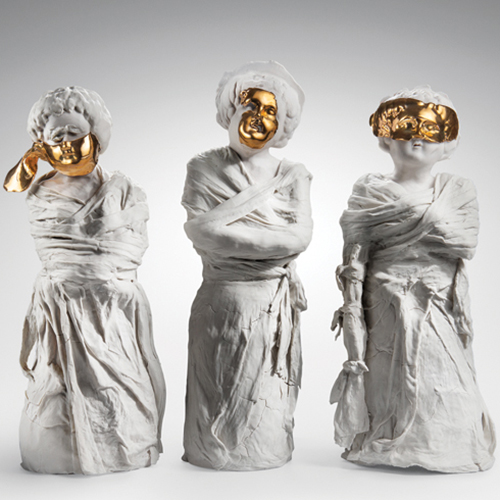 Clay Culture: Out of the White CubeSeeking alternative venues that spoke to the subject matter explored in her sculptures, Kimberly Chapman made connections with a former asylum to exhibit a body of work titled Eighty-Six Reasons.
Clay Culture: Out of the White CubeSeeking alternative venues that spoke to the subject matter explored in her sculptures, Kimberly Chapman made connections with a former asylum to exhibit a body of work titled Eighty-Six Reasons. -
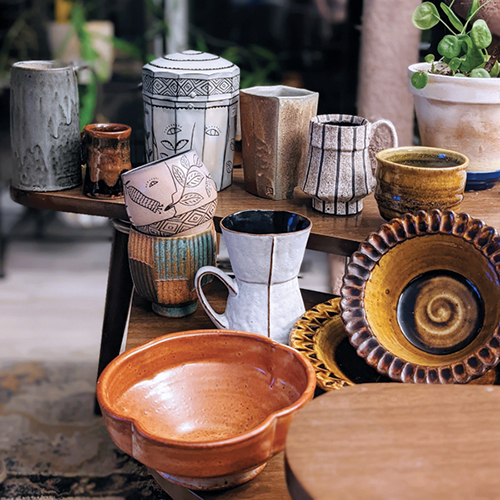 Clay Culture: Joy in Beauty and UseKate Marotz shares the benefits of building a collection of ceramic pieces made by other potters and artists. The use of these pots brings joy to her day and guidance for her own work.
Clay Culture: Joy in Beauty and UseKate Marotz shares the benefits of building a collection of ceramic pieces made by other potters and artists. The use of these pots brings joy to her day and guidance for her own work. -
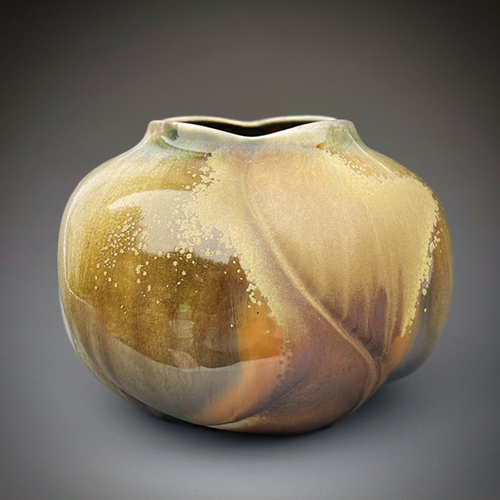 Exposure: October 2022Images from Current and Upcoming Exhibitions
Exposure: October 2022Images from Current and Upcoming Exhibitions -
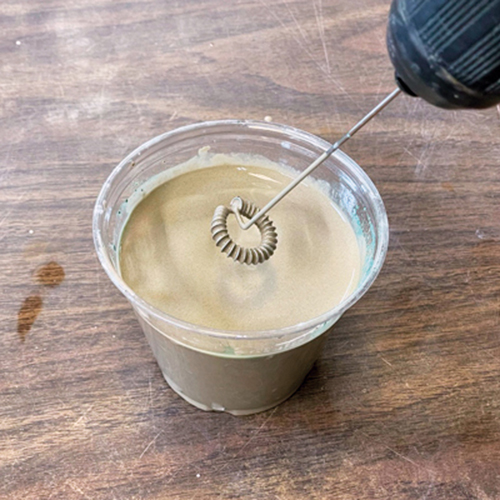 Quick Tip: Milk Frother CombinationIf you have ever made your own glaze-test batches, you’ve probably been frustrated by how much the glaze splatters when you mix it.
Quick Tip: Milk Frother CombinationIf you have ever made your own glaze-test batches, you’ve probably been frustrated by how much the glaze splatters when you mix it. -
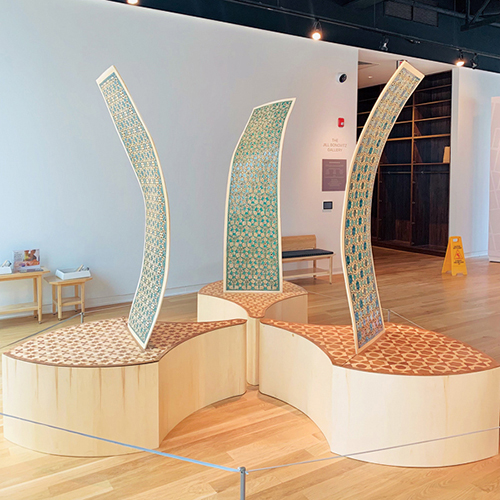 From the Editor: October 2022In this issue, we focus on people who curate, study, and collect ceramics and the many types of venues that showcase ceramics.
From the Editor: October 2022In this issue, we focus on people who curate, study, and collect ceramics and the many types of venues that showcase ceramics. -
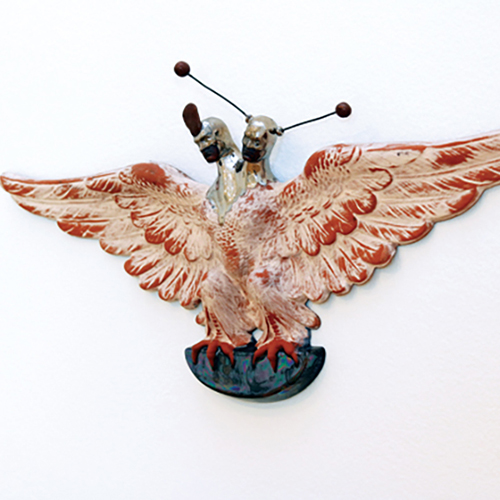 Bridges to Other Realities: Salvador Jiménez-Flores’ Provocative SculpturesMaking artwork helps Salvador Jiménez-Flores continue his search for identity as a bicultural, bilingual person. It also provides a way to explore complex topics including migration, colonization, immigration, and futurism.
Bridges to Other Realities: Salvador Jiménez-Flores’ Provocative SculpturesMaking artwork helps Salvador Jiménez-Flores continue his search for identity as a bicultural, bilingual person. It also provides a way to explore complex topics including migration, colonization, immigration, and futurism. -
 Spotlight: Keeping Art AliveVirgil Ortiz uses materials and processes that have been handed down for centuries. Working in a variety of formats, he strives to educate viewers on the history of the Pueblo Revolt and Pueblo art and culture.
Spotlight: Keeping Art AliveVirgil Ortiz uses materials and processes that have been handed down for centuries. Working in a variety of formats, he strives to educate viewers on the history of the Pueblo Revolt and Pueblo art and culture. -
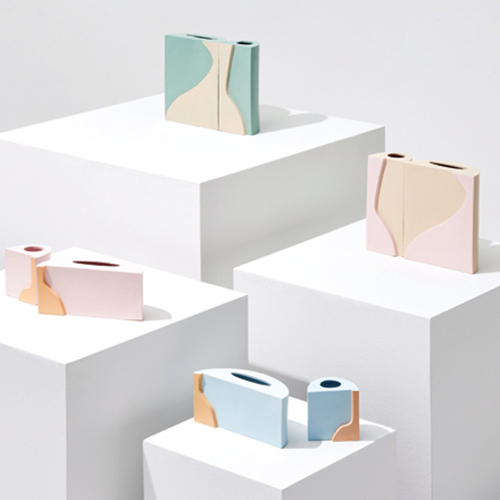 Call for Entries: September 2022Information on submitting work for exhibitions, fairs, and festivals.
Call for Entries: September 2022Information on submitting work for exhibitions, fairs, and festivals. -
 Recipes: Terra Sigillata and MajolicaMark Arnold shares the recipe for terra sigillata that he uses to create the colorful, patterned surfaces on his work, the majolica recipe he uses as a liner glaze, and the magic water recipe he uses for joining attachments.
Recipes: Terra Sigillata and MajolicaMark Arnold shares the recipe for terra sigillata that he uses to create the colorful, patterned surfaces on his work, the majolica recipe he uses as a liner glaze, and the magic water recipe he uses for joining attachments. -
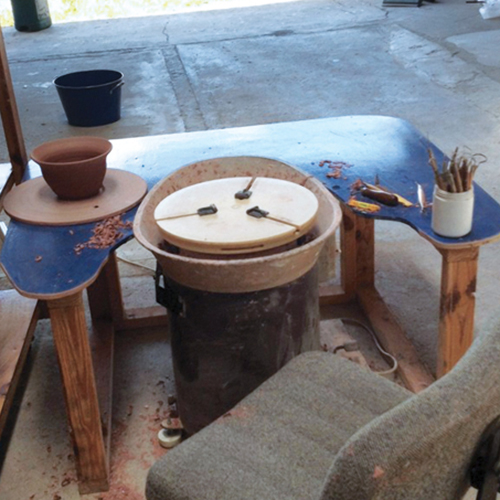 Tips and Tools: Wheel TableFor a truly custom and functional workspace, inset your potter’s wheel into a table surface to keep buckets, tools, and works in progress close at hand.
Tips and Tools: Wheel TableFor a truly custom and functional workspace, inset your potter’s wheel into a table surface to keep buckets, tools, and works in progress close at hand. -
 Techno File: Acid-Etching CrystalsInterested in expanding on the glaze chemistry and firing techniques associated with crystalline pottery? Try acid-etching the colorants from surface crystals to create curious silver effects.
Techno File: Acid-Etching CrystalsInterested in expanding on the glaze chemistry and firing techniques associated with crystalline pottery? Try acid-etching the colorants from surface crystals to create curious silver effects. -
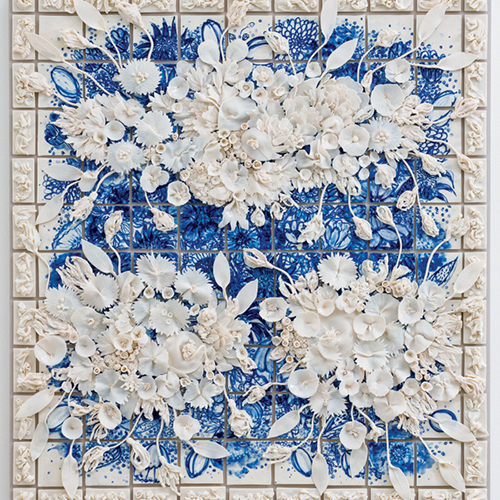 ElementalThis year, our readership-wide contest features selected work from ceramic artists inspired by those things critical and essential—from everyday routines, to the visual foundations of art and design, to the earth and its forces.
ElementalThis year, our readership-wide contest features selected work from ceramic artists inspired by those things critical and essential—from everyday routines, to the visual foundations of art and design, to the earth and its forces. -
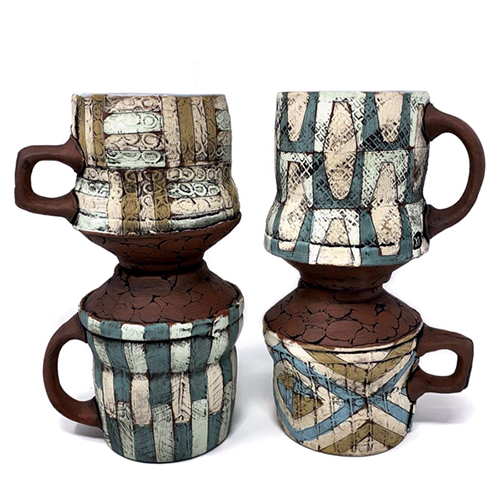 BMX Culture Meets Clay Culture in Mark Arnold’s Abstracted SurfacesFinding parallels between BMX and clay while taking constant inspiration from the landscapes around him, Mark Arnold creates handbuilt vessels that tell stories through their construction and the abstracted patterns on their surfaces.
BMX Culture Meets Clay Culture in Mark Arnold’s Abstracted SurfacesFinding parallels between BMX and clay while taking constant inspiration from the landscapes around him, Mark Arnold creates handbuilt vessels that tell stories through their construction and the abstracted patterns on their surfaces. -
 Bridges to Other Realities: Salvador Jiménez-Flores’ Provocative SculpturesMaking artwork helps Salvador Jiménez-Flores continue his search for identity as a bicultural, bilingual person. It also provides a way to explore complex topics including migration, colonization, immigration, and futurism.
Bridges to Other Realities: Salvador Jiménez-Flores’ Provocative SculpturesMaking artwork helps Salvador Jiménez-Flores continue his search for identity as a bicultural, bilingual person. It also provides a way to explore complex topics including migration, colonization, immigration, and futurism. -
 Tina Curry: A Gift of Horse SenseA lifelong focus on observing and interacting with animals and a desire to convey the feelings experienced while viewing the living animal have influenced Tina Curry’s figurative ceramic sculptures.
Tina Curry: A Gift of Horse SenseA lifelong focus on observing and interacting with animals and a desire to convey the feelings experienced while viewing the living animal have influenced Tina Curry’s figurative ceramic sculptures. -
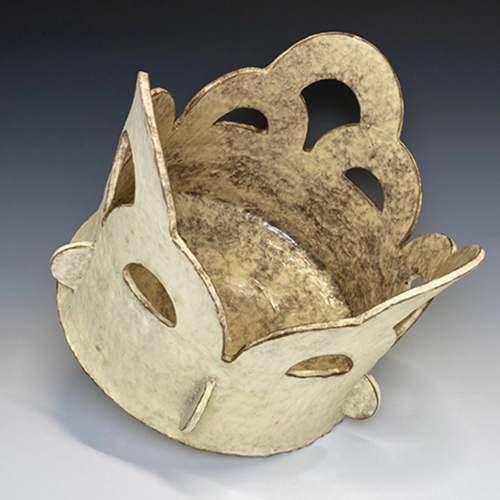 Kat West: Healing and Generational BelongingKat West’s experience working in healthcare, her upbringing as an immigrant, and a move to a new community as an adult led her to explore questions of identity and kinship in her thrown and handbuilt earthenware forms.
Kat West: Healing and Generational BelongingKat West’s experience working in healthcare, her upbringing as an immigrant, and a move to a new community as an adult led her to explore questions of identity and kinship in her thrown and handbuilt earthenware forms. -
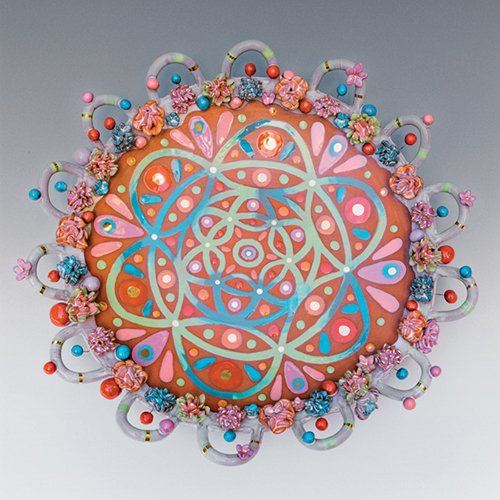 Studio Visit: Cybèle Beaudoin-Pilon, Montréal, CanadaA formerly dilapidated garage has been transformed into an efficient studio space where Cybèle Beaudoin-Pilon works with earthenware to create colorful, functional works that explore her interest in reclaiming things that are not valued.
Studio Visit: Cybèle Beaudoin-Pilon, Montréal, CanadaA formerly dilapidated garage has been transformed into an efficient studio space where Cybèle Beaudoin-Pilon works with earthenware to create colorful, functional works that explore her interest in reclaiming things that are not valued. -
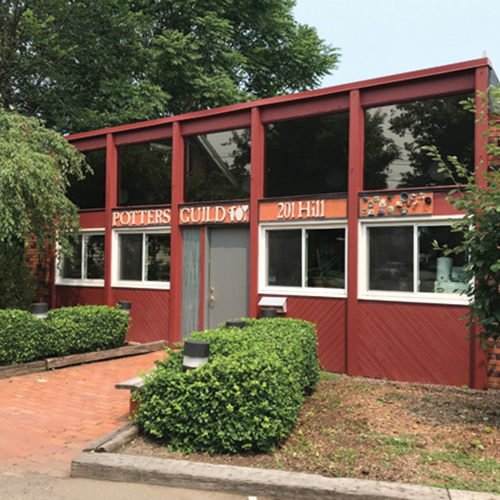 Clay Culture: Nature CollaborationTo celebrate the Potters Guild of Ann Arbor’s 70th anniversary, guild members collaborated on a series of sculptures, which were exhibited at the University of Michigan’s Matthaei Botanical Gardens.
Clay Culture: Nature CollaborationTo celebrate the Potters Guild of Ann Arbor’s 70th anniversary, guild members collaborated on a series of sculptures, which were exhibited at the University of Michigan’s Matthaei Botanical Gardens. -
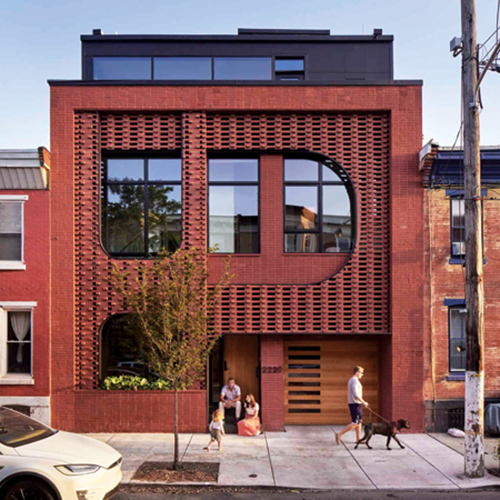 Clay Culture: The 2021 Brick in Architecture AwardsThe Brick Industry Association recognizes extraordinary clay-brick structures with the Brick in Architecture Awards. Learn more about the types of innovative projects that won the 2021 awards.
Clay Culture: The 2021 Brick in Architecture AwardsThe Brick Industry Association recognizes extraordinary clay-brick structures with the Brick in Architecture Awards. Learn more about the types of innovative projects that won the 2021 awards. -
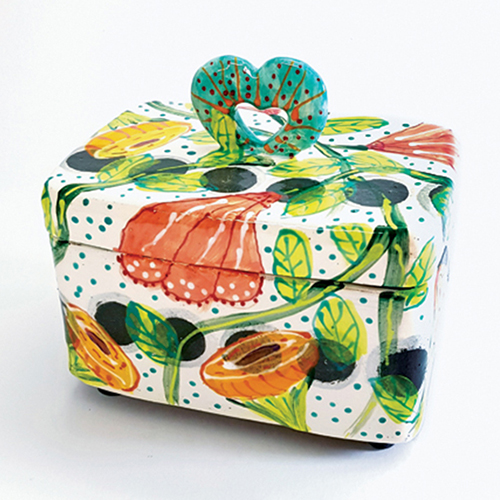 Exposure: September 2022Images from Current and Upcoming Exhibitions
Exposure: September 2022Images from Current and Upcoming Exhibitions
- «
- 31
- 32
- 33 (current)
- 34
- 35
- 36
- 37
- 38
- 39
- 40
- »
